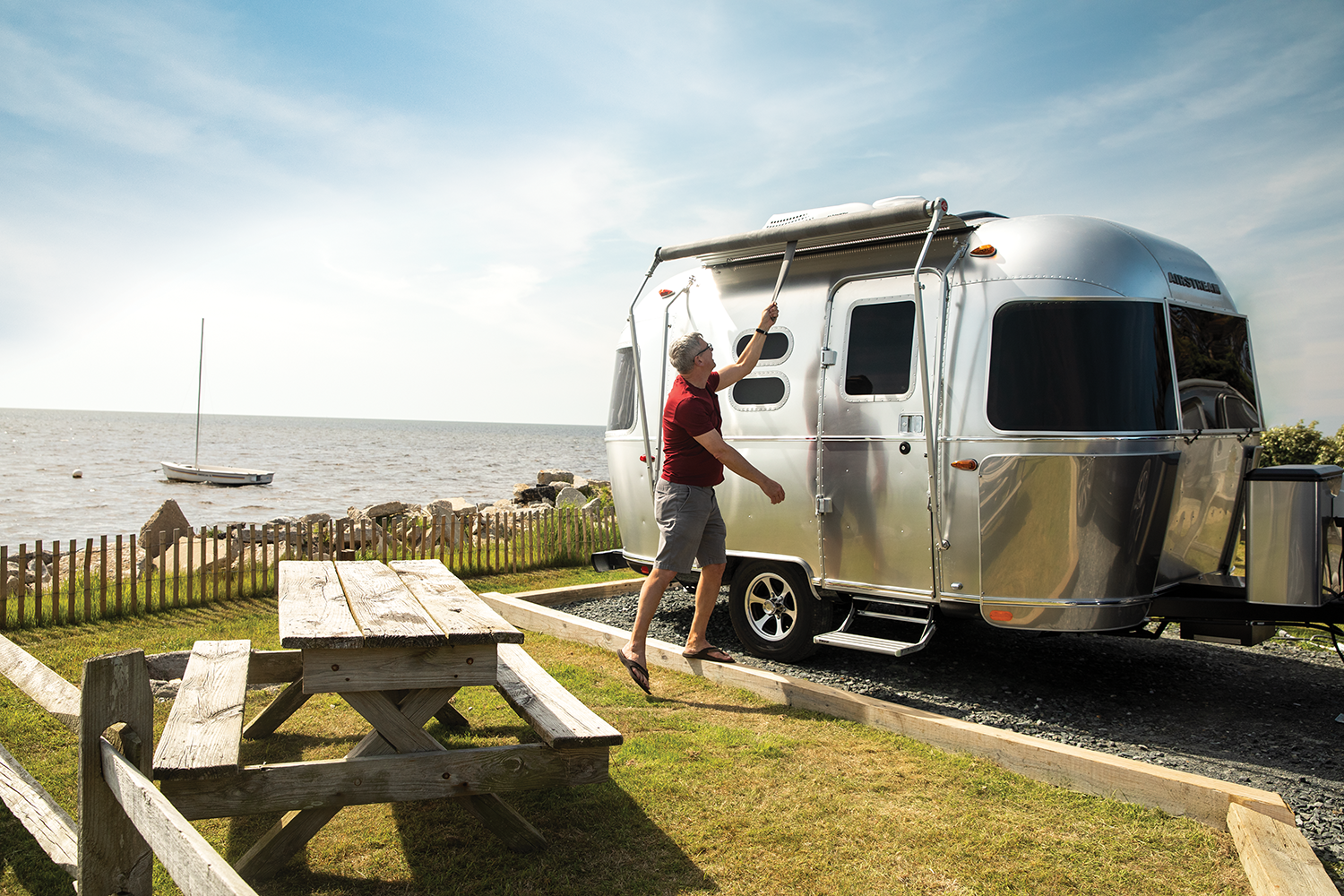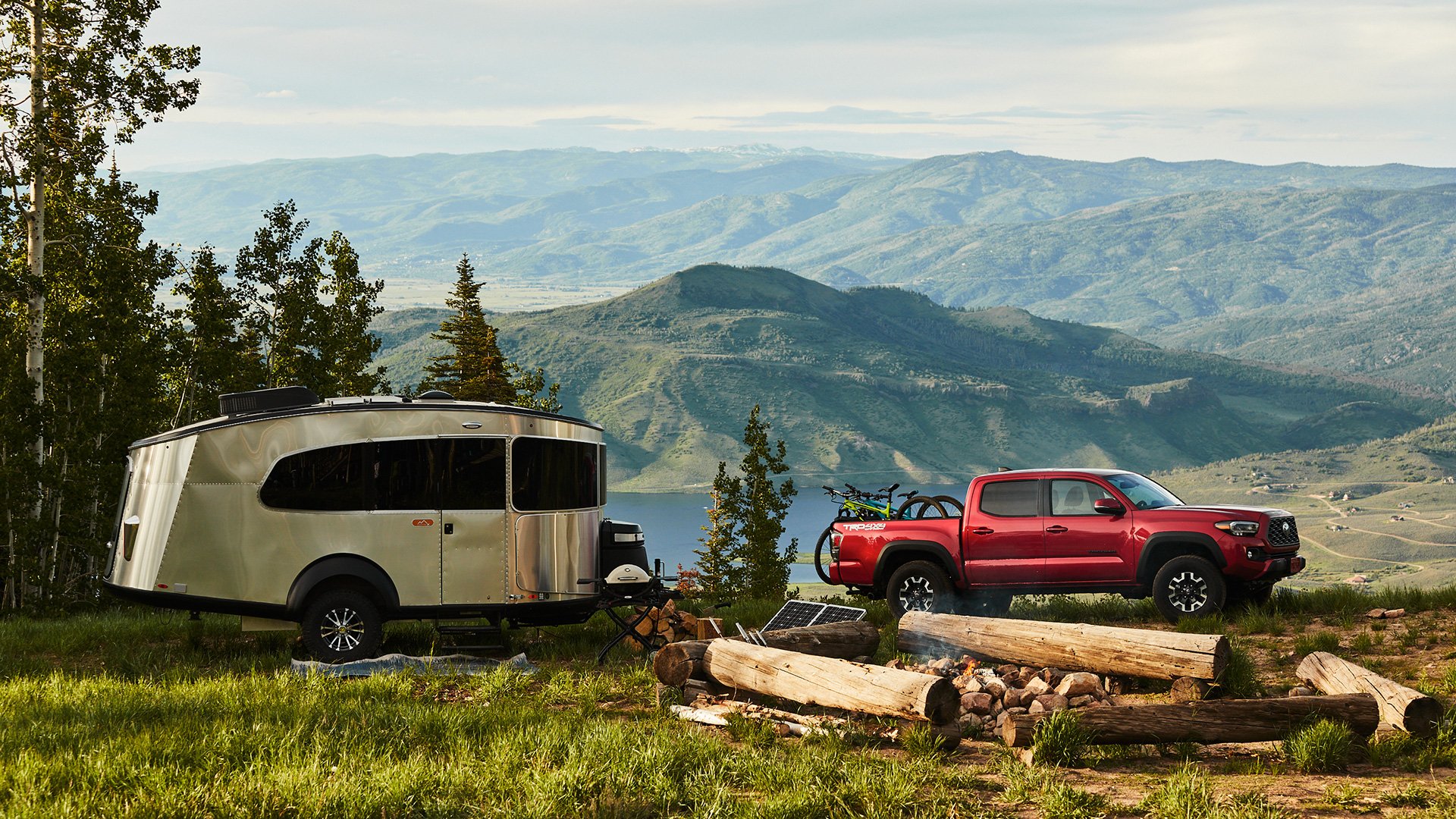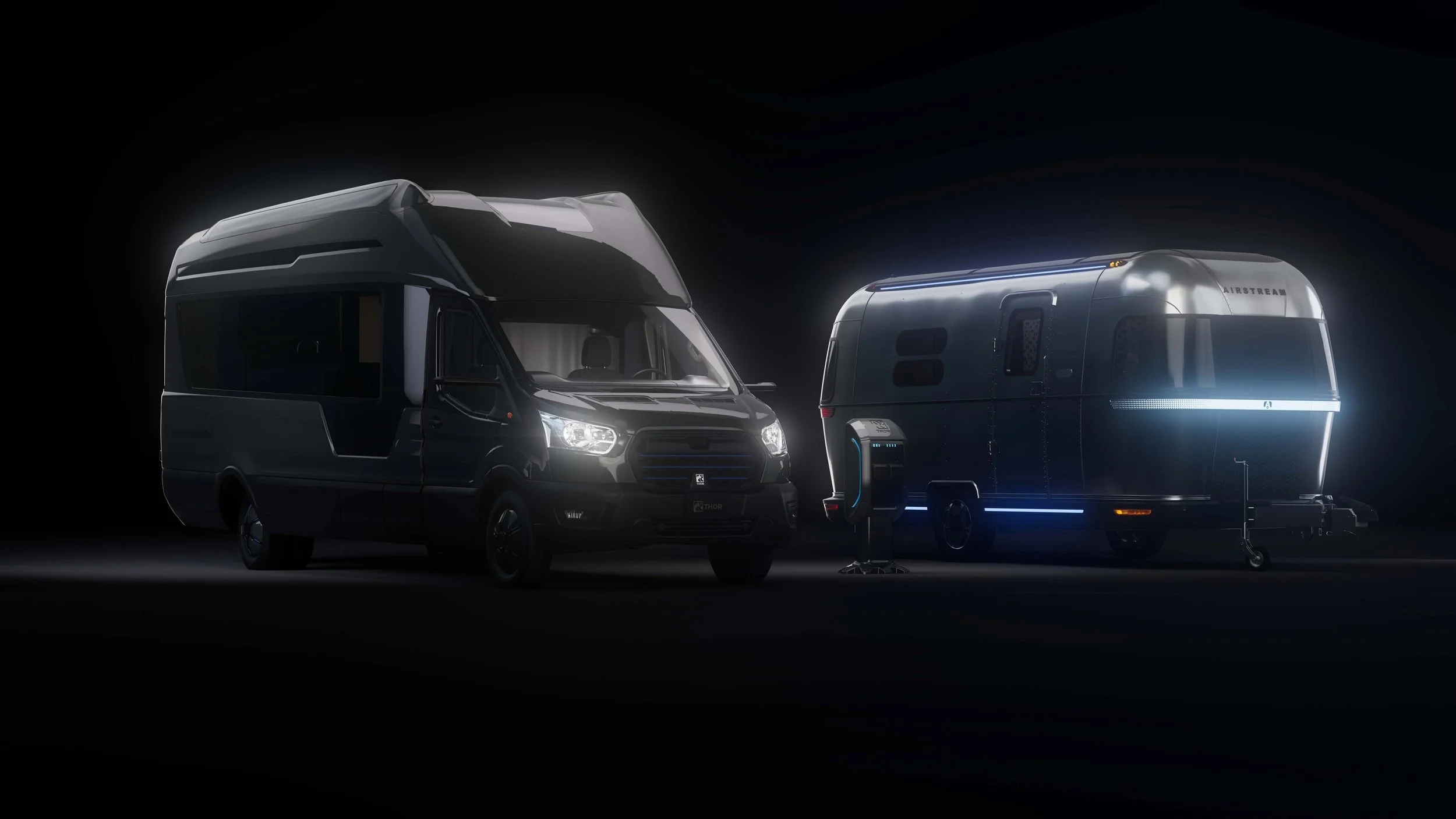Powered Trailers – It’s Happening!
By Edward A. Sanchez – Jan. 12, 2022
If you’ve followed The Watt Car for any length of time, you’ll know that I’ve hypothesized and advocated for the concept of electric powered trailers for quite a while. After a successful on-road proof-of-concept test by its German subsidiary Erwin Hymer Group, American leisure vehicle manufacturer Thor Industries has announced that it plans to bring the powered trailer concept to the U.S. market in conjunction with ZF Group.
The only pushback or caveat I’ve heard from engineering types (of which I admittedly am not) is that if the trailer “pushed” the tow vehicle, it could cause potentially dangerous driving dynamics. However, it seems like the crew at Erwin Hymer Group (the German subsidiary of Thor Industries) and ZF took this into account when designing the system, which they tested on the Dethleffs E.Home Coco, towed by an Audi e-tron.
The powered wheels on the trailer come just shy of “pushing” the tow vehicle, instead letting the tow vehicle take the lead, so-to-speak, gently providing a motive boost to mitigate the inevitable range loss when towing an unassisted trailer with an EV. In an on-road test with Dethleffs and ZF, the e-tron achieved nearly its full unladen range – a ringing endorsement of the powered trailer concept.
In a press release just before Christmas, Thor announced a binding memorandum of understanding (MOU) with ZF Friedrichshafen AG for joint development of a proprietary high-voltage electric drive system for towable recreational vehicles, dubbed the "eTrailer System.” In Thor’s words, the system is “designed to maintain, and possibly extend, the nominal range of an electric vehicle when towing a trailer.”
Airstream’s Bambi and Caravel travel trailers are likely the most similar in size to the E.Home Coco, although electrification would add to their already pricy MSRPs (the Bambi starts at $56,500 and the Caravel is $70,500). (Image courtesy Airstream)
As noted earlier, the concept was successfully proven when engineers from Thor’s German RV subsidiary Erwin Hymer Group, Dethleffs, and ZF engineers towed the E.Home Coco concept over the German Alps, achieving a range of 386 km (approximately 240 miles) which is nearly the same as the e-tron’s official range figure of 393 km.
Up to now, truck and SUV buyers’ persistent objection to EVs (and not irrationally so) was the hit in range from towing a trailer. Even with rated ranges of 300 or more miles, towing would cut that in about half. This approach potentially takes that issue off the table.
Of course, there’s always a downside to new technologies, and in this case, it’s cost, and the unavoidable issue of infrastructure development, which Thor has no direct control over.
Although Thor has not officially said which brand the eTrailer platform will launch with, the most logical assumption would be Airstream, since it’s regarded as the flagship brand of Thor travel trailers, and prices that start just below $50,000 for its entry-level models, heading well into six figures for top-of-the-line models.
For these customers, an additional $20,000-30,000 for the advantage of effectively zero range degradation while towing would likely find a receptive audience.
Airstream’s Basecamp model is the company’s least expensive, starting at $43,900. (Image courtesy Airstream)
The advantage of the eTrailer system is it’s powertrain-agnostic for the tow vehicle, meaning both an ICE and EV could take advantage of the technology, a smart approach when the vast majority of vehicles on the road are ICE, and will likely continue to be for several decades.
Beyond this, Thor Industries said it will unveil an “electric vehicle with range extension technology” at the Tampa RV show, which takes place Jan. 19-23, 2022.
We are extremely excited at this development, and hope it has ripple effects on both infrastructure development, and even the possibility of J1772 perhaps becoming the new power supply standard at RV parks.
While there may be some who remain EV cynics and skeptics in the truck, utility, and recreational vehicle market, this development removes at least one persistent and valid objection.
(Main image courtesy Dethleffs)
- Store - Podcast - Facebook - Google News - Twitter -










